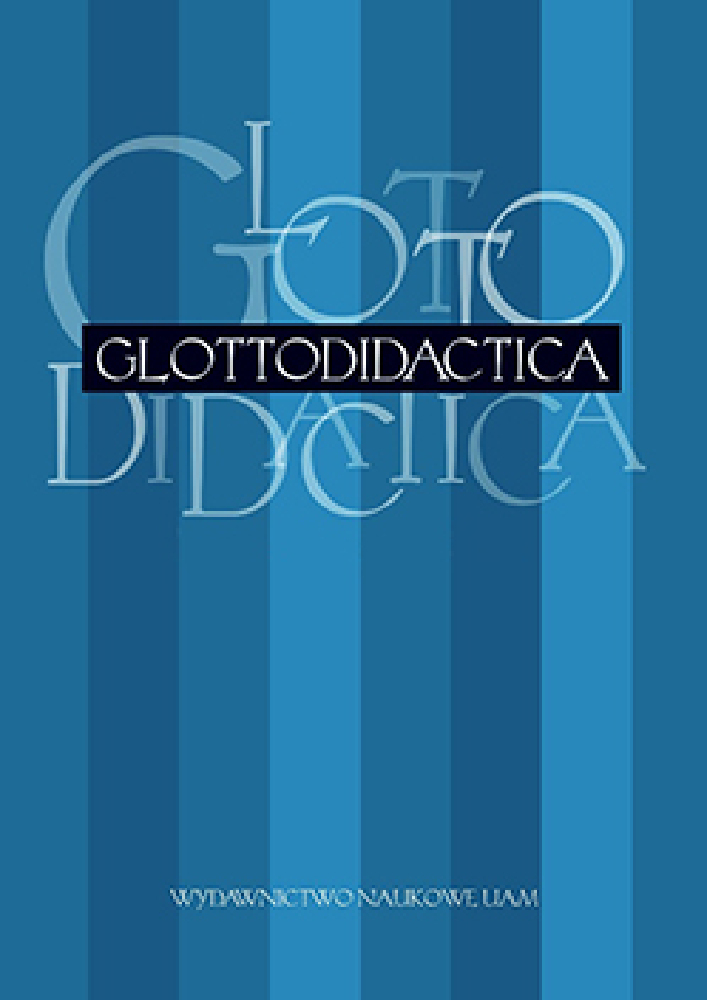Abstract
The influence of English on German has grown in the last decades and is likely to continue. The aim of this paper is to investigate the occurrence of Anglicisms in the travel magazine Lonely Planet Traveller Deutschland (October, 2014). The particular focus is on the parts of speech and word formation types they represent. First we make an attempt to define the terms loanword and Anglicism. In the second part we present and discuss the results of our corpus linguistic study. The findings of the study show the dominance of nouns in the analysed Anglicisms (especially hybrid nominal compounds). The research can be of significance for further studies on the language of tourism industry.
Literaturhinweise
Altleitner, M. 2007. Der Wellness-Effekt. Die Bedeutung von Anglizismen aus der Perspektive der kognitiven Linguistik (Europäische Hochschulschriften, Reihe XXI Bd. 310). Frankfurt am Main u. a.: Peter Lang.
Barz, I. 2008. Englisches in der deutschen Wortbildung. In: Eichinger, L. M. / Meliss, M. / Vazquez, M. J. D. (Hrsg.). Wortbildung heute. Tendenzen und Kontraste in der deutschen Gegenwartssprache. Tübingen: Narr, 39-60.
Braun, P. (Hrsg.). 1979. Fremdwort-Diskussion. München: Fink.
Bußmann, H. 2002. Lexikon der Sprachwissenschaft. Stuttgart: Kröner.
Carstensen, B. 1979. Evidente und latente Einflüsse Englischen auf das Deutsche. In: Braun, P. (Hrsg.). Fremdwort-Diskussion. München: Wilhelm Fink Verlag, 90-94.
Deutsches Fremdwörterbuch. (1913-2004). Berlin/New York: Institut für deutsche Sprache.
Dresch, A. 1995. Adventure Look und Sport-Appeal: Das Phänomen „modischer‟ Anglizismen in Men-Lifestyle-Zeitschriften. In: Deutsche Sprache 20, 240-268.
Duckworth, D. 1979. Der Einfluss des Englischen auf die deutsche Sprache seit 1945. In: Braun, P. (Hrsg.). Fremdwort-Diskussion. München: Wilhelm Fink Verlag, 212-245.
DUDEN. Duden online [17.08.2015].
Dunger, H. 1909. Engländerei in der deutschen Sprache. Berlin: Verlag F. Berggold.
Glück, H. (Hrsg.). 2010. Metzler Lexikon Sprache. Stuttgart / Weimar: Verlag J.B. Metzler.
Görlach, M. 1999. Morphological problems of integration. English loanword ending in –er and –ing in selected European languages. In: Carls, U. / Lucko P. (Hrsg.). Form, function and variation in English. Studies in honour of Klaus Hansen. Frankfurt am Main: Lang, 117-125.
Götzeler, Ch. 2008. Anglizismen in der Pressesprache. Alte und neue Bundesländer im Vergleich. In: Greifswalder Beiträge zur Linguistik, Bd. 5. Bremen: Hempen.
Jabłoński, M. 1990. Regularität und Variabilität in der Rezeption englischer Internationalismen im modernen Deutsch, Französisch und Polnisch. Aufgezeigt in den Bereichen Sport, Musik und Mode. Tübingen: Max Niemeyer Verlag.
Jachym, B. 2014. Deutsch als Wissenschaftssprache, where are you? Einige Bemerkungen zu den Artikelüberschriften in der deutschen Onlinepresse. In: Glottodidactica, 41, 2, 87-103. DOI: http://dx.doi.org/10.14746/gl.2014.41.2.6
Kawęcka, P. 2015. Englische Elemente im Gegenwartsdeutsch der Touristikbranche am Beispiel der Fachzeitschrift „Lonely Planet Traveller Deutschland“. Poznań: UAM (unveröffentlichte Bachelorarbeit, Betreuerin: Dr. Monika Kowalonek-Janczarek).
Kowalonek-Janczarek, M. 2014. Anglizismen aus linguistischer und didaktischer Sicht. In: Glottodidactica, 41, 2, 47-58. DOI: http://dx.doi.org/10.14746/gl.2014.41.2.3
Langner, H. C. 1995. Die Schreibung englischer Entlehnungen im Deutschen: eine Untersuchung zur Orthographie von Anglizismen in den letzten hundert Jahren, dargestellt an Hand des Dudens. Frankfurt am Main: Lang.
Lüger, H. (Hrsg.), 2003. Anpassung und Wandel in der elsässischen Regionalpresse. Im Blickpunkt: das ELSASS. Landau: Knecht, 207-230.
Pfitzner, J. 1978. Der Anglizismus im Deutschen – Ein Beitrag zur Bestimmung der stilistischen Funktion in der heutigen Presse. Stuttgart: Metzler.
Polenz, P., von. 2009. Geschichte der deutschen Sprache. Berlin: De Gruyter.
Stiven, A. B. 1936. Englands Einfluß auf den deutschen Wortschatz. Marburg: Zeulenroda, B. Sporn.
Yang, W. 1990. Anglizismen im Deutschen am Beispiel des Nachrichtenmagazins „Der Spiegel“. Tübingen: Niemeyer.
Lizenz
Copyright (c) 2015 Monika Kowalonek-Janczarek, Pola Kawęcka

Dieses Werk steht unter der Lizenz Creative Commons Namensnennung - Keine Bearbeitungen 4.0 International.
Authors
Authors of texts accepted for publication in Glottodidactica are required to complete, sign and return to the editor's office the Agreement for granting a royalty-free license to works with a commitment to grant a CC sub-license.
Under the agreement, the authors of texts published in Glottodidactica grant the Adam Mickiewicz University in Poznań a non-exclusive, royalty-free license and authorize the use of Attribution-NoDerivatives 4.0 International (CC BY-ND 4.0) Creative Commons sub-license.
The authors retain the right to continue the free disposal of the work.
Users
Interested Internet users are entitled to use works published in Glottodidactica since 2016, under the following conditions:
- attribution - obligation to provide, together with the distributed work, information about the authorship, title, source (link to the original work, DOI) and the license itself.
- no derivatives - the work must be preserved in its original form, without the author's consent it is not possible to distribute the modified work, such as translations, publications, etc.
Copyrights are reserved for all texts published before 2016.
Miscellaneous
Adam Mickiewicz University in Poznań retains the right to magazines as a whole (layout, graphic form, title, cover design, logo etc.).




